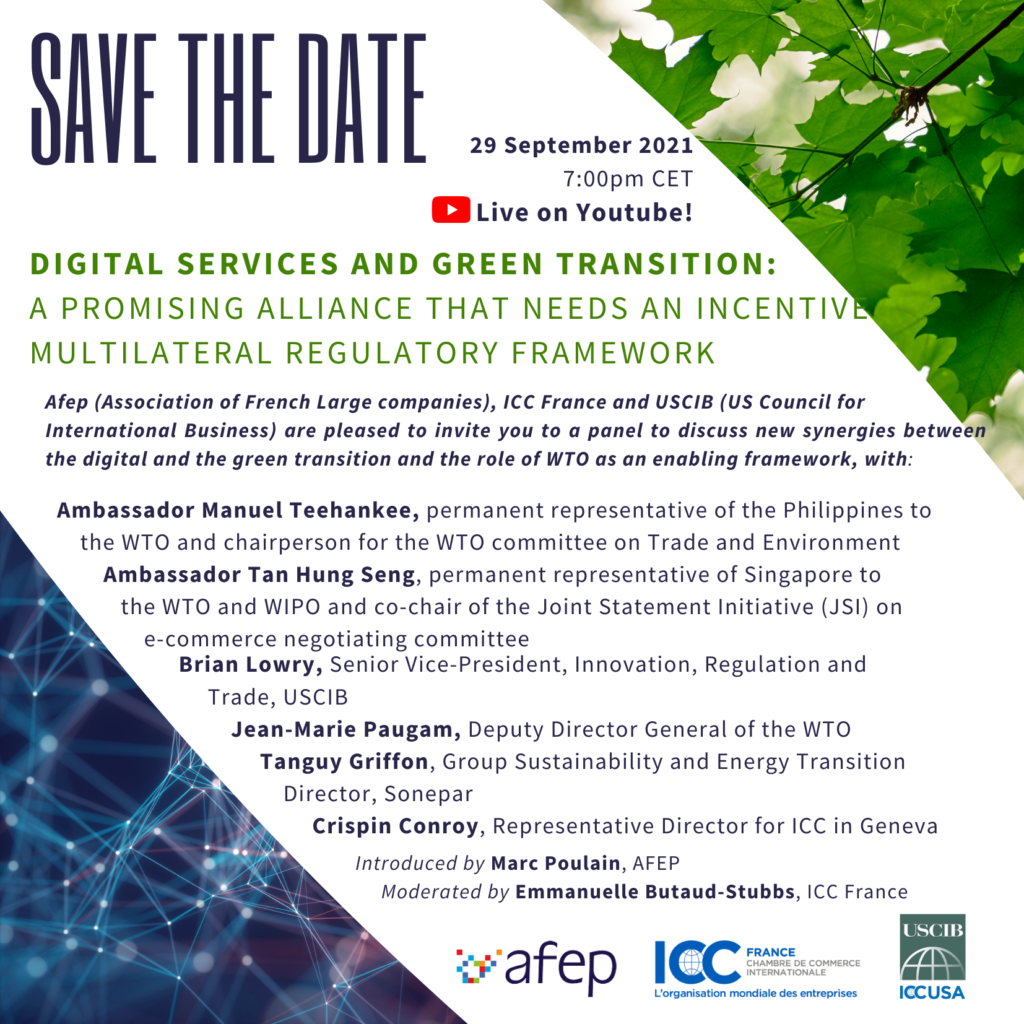Write a new WTO rulebook to frame and stimulate the two major twin transformations: green and digital transitions
The global business community has been constantly supported a rule-based international trading system, with the WTO at its core. Difficulties in moving past the freezing of the Doha Round negotiating process directed attention towards more ambitious bilateral or plurilateral agreements, but international trade tensions over the last five years clearly clarified that the interest of private companies across the world is to maintain a functioning multilateral system capable to settle major disputes between trading partners and to craft a sound and updated rulebook for global value chains, covering in particular disciplines aimed to ensure competitive neutrality, enabling rules to reconcile trade and environment and facilitating the transition to a digital economy.
As consolidated during the summer, the agenda of MC12 is set to focus on topics such as trade and health, fisheries subsidies, farm talks but in the eyes of private businesses, the need for updated rulebook fit for XXIth century issues) should also be a priority for the next two years.
To put forward the concrete added-value of these new rules, AFEP, ICC France and USCIB -ICC US have decided to highlight how digital trade could be coupled with the green transition for the benefit of the entire community.
The panel that brings together representatives of WTO memberships and secretariat, business representatives and other interested stakeholders in a friendly and informal atmosphere has two goals:
- to showcase practical examples illustrating how new digital services are likely to offer effective and innovative solutions to reduce the environmental impact of human activities and contribute to sustainable developments objectives both in agriculture and industry,
- to prompt discussions within the WTO sphere on how to design a incentive regulatory framework facilitating cross-border supply of climate friendly digital solutions (removal of regulatory barriers, new approach on market access for these services).






